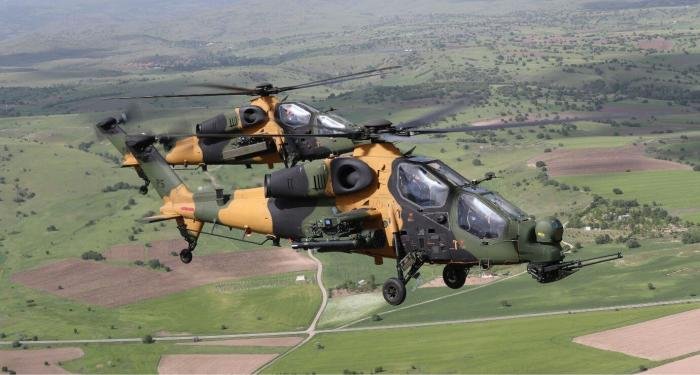Turkish Aerospace Industries (TUSAŞ) has confirmed it will supply six T129 ATAK attack helicopters to Nigeria under a recently signed contract.
The acquisition was confirmed in a statement by Temel Kotil, CEO of TUSAŞ, at the Farnborough International Airshow, which was held from July 18-22. While the delivery schedule and the exact date of the contract signing was not disclosed – along with the contract value – it was stated that Nigeria will receive six T129 ATAKs in total. However, in his speech, Kotil explained that the attack helicopters would be delivered in the near future.

This sale comes after TUSAŞ sold six T129s to the Philippines under a contract worth $269m. The Philippine Air Force (PAF) has already received two examples, with the remaining four aircraft set to be delivered in 2023. It also comes after Turkey and Nigeria signed a Defence Industry Cooperation agreement, which started in October 2021.
Nigeria has been seeking a new attack helicopter fleet to compliment its Soviet-era Mil Mi-24P/V Hind-F/E and Mi-35M/P Hind-E/F gunships in further supporting counterterrorism operations. The Nigerian Air Force (NAF) also operates a four-strong fleet of AgustaWestland AW109E Power helicopters in the light attack role. It has been reported that both Airbus Helicopters and India’s Hindustan Aeronautics Ltd (HAL) also competed for the Nigerian attack helicopter contract.
Based on the A129 Mangusta and developed under license from AgustaWestland (now Leonardo Helicopters), the T129 ATAK has achieved limited success on the export market. The type is operated by several Turkish services, such as the Turkish Land Forces and Turkish Gendarmerie. The platform has also been exported to the Philippines. While a deal between TUSAŞ and the Pakistan Army for the supply of 30 T129B ATAKs was confirmed in July 2018, the US government refused to issue an export licence for the engines, which ultimately stalled the deal. The Turkish National Police also ordered six examples of the T129B in 2017.

